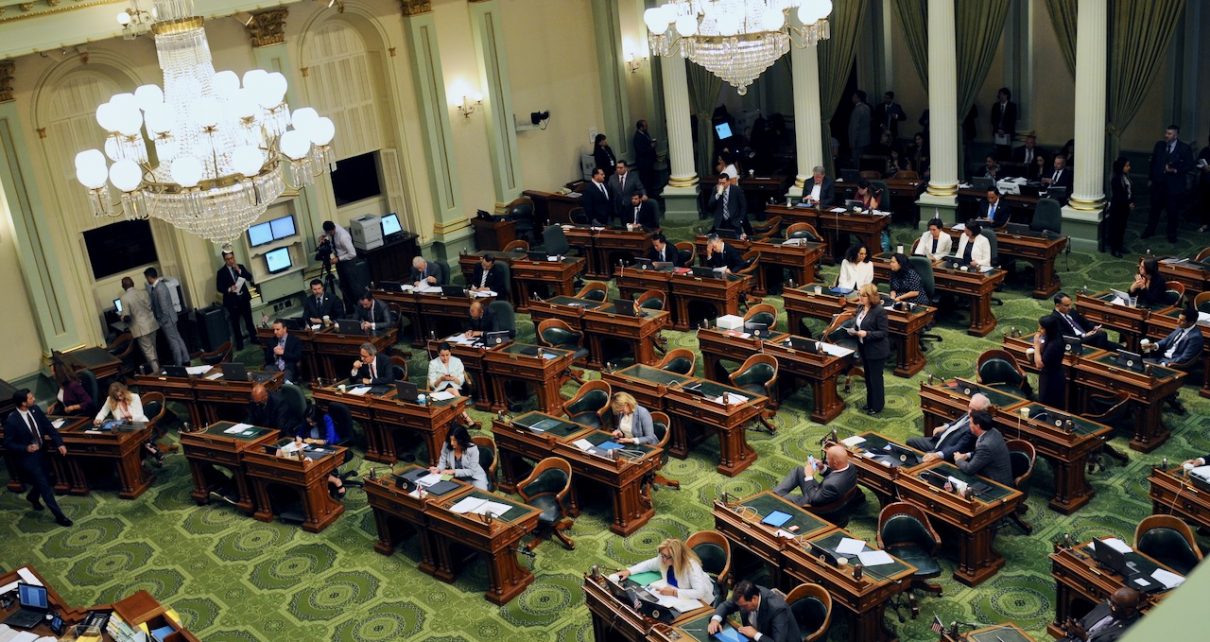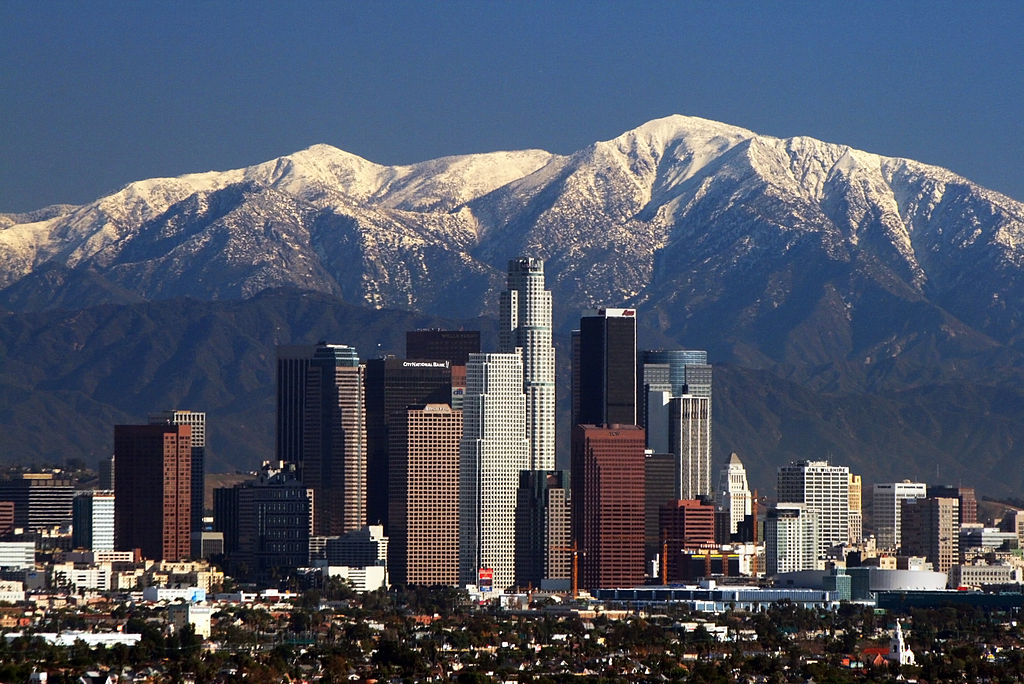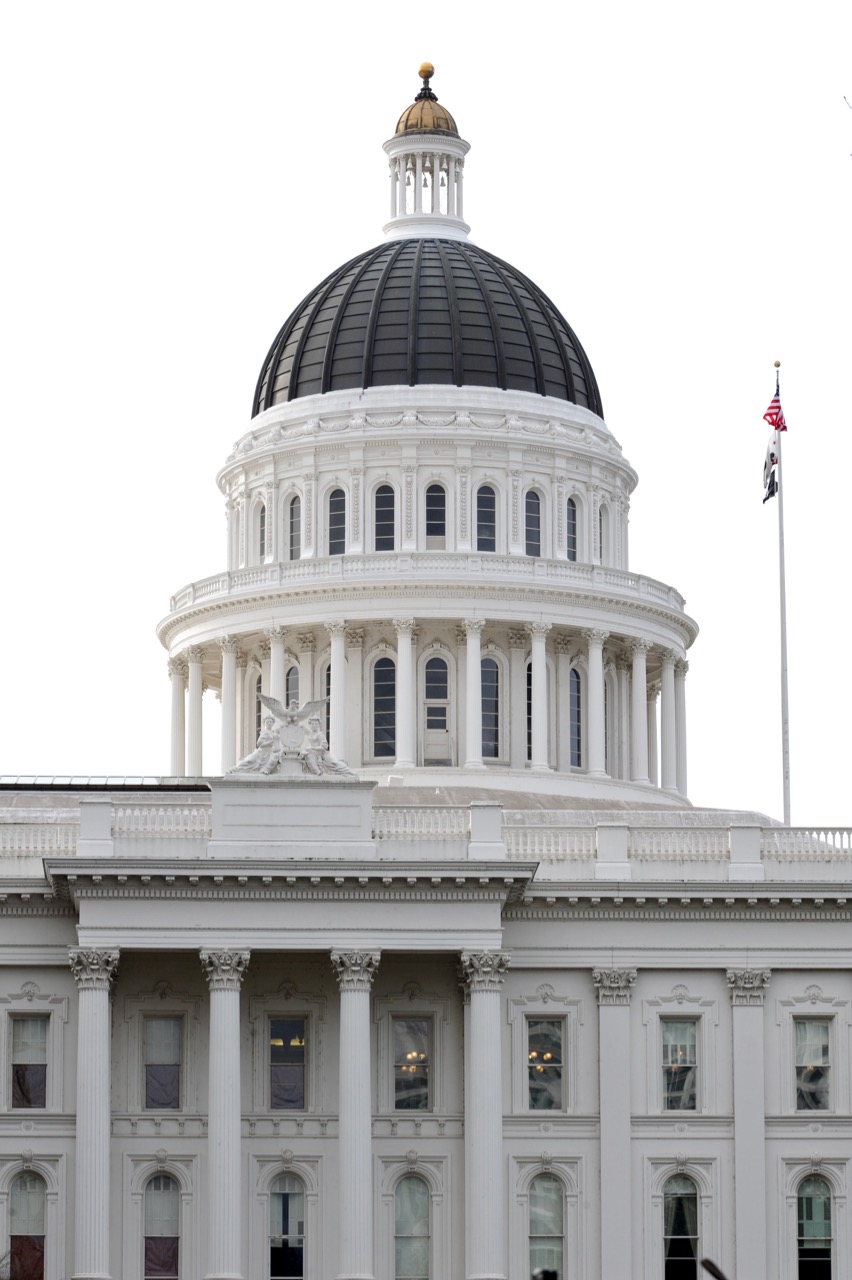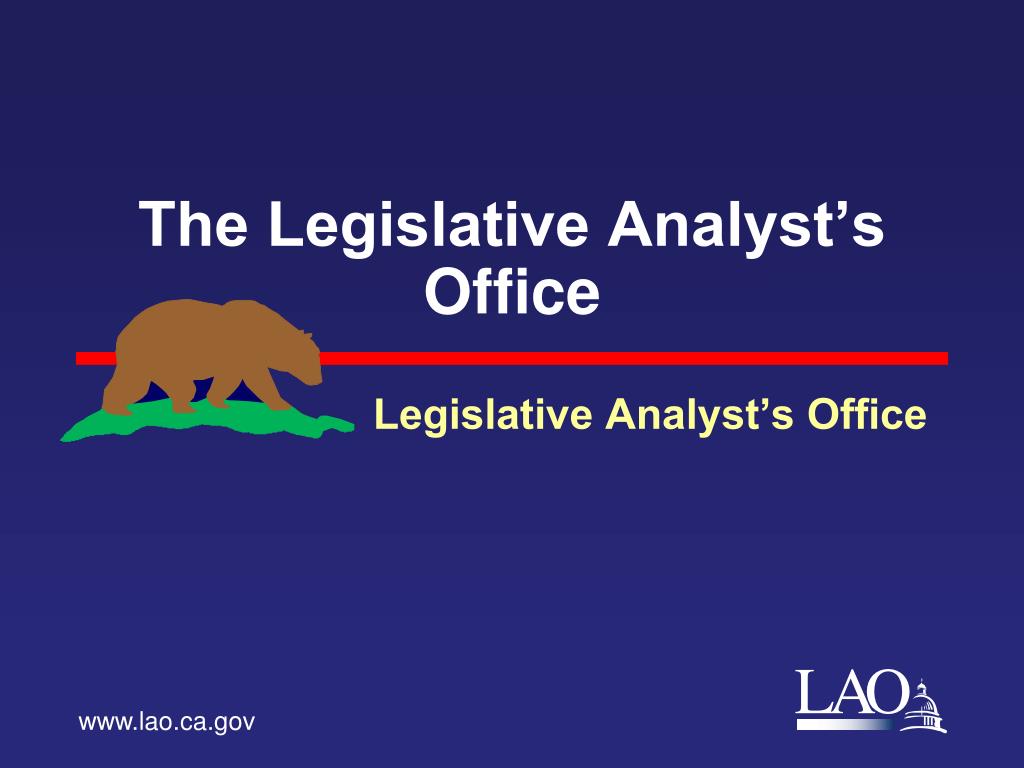
California State Assembly Chamber. (Photo: Kevin Sanders for California Globe)
An Overview of Proposition 54 and Its Impact on California Government
California Legislature Transparency Act requires a 72-hour advance notice period from when a bill is printed, made available to the public, and the vote
By Chris Micheli, November 1, 2020 7:30 am
Proposition 54, which was enacted by the voters at the November 2016 general election, adopted constitutional and statutory changes dealing bill amendments and recordings of legislative proceedings. According to the Attorney General’s Ballot Summary, Prop. 54:
Prohibits Legislature from passing any bill unless published on Internet for 72 hours before vote. Requires Legislature to record its proceedings and post on Internet. Authorizes use of recordings. Fiscal Impact: One-time costs of $1 million to $2 million and ongoing costs of about $1 million annually to record legislative meetings and make videos of those meetings available on the Internet
Prop. 54, whose title is the “California Legislature Transparency Act,” included numerous findings and declarations as part of the ballot measure. For example, those findings included that “It is essential to the maintenance of a democratic society that public business be performed in an open and public manner, and highly desirable that citizens be given the opportunity to fully review every bill and express their views regarding the bill’s merits to their elected representatives, before it is passed.”
The proponents of Prop. 54 were specifically concerned with “gut-and-amend” bills that contain “last-minute amendments to bills [that] are frequently used to push through political favors without comment or with little advance notice. Moreover, complex bills are often passed before members of the Legislature have any realistic opportunity to review or debate them, resulting in ill-considered legislation.”
As a result of the findings, Prop. 54 made several declarations, including that, “to foster disclosure, deliberation, debate, and decorum in our legislative proceedings, to keep our citizens fully informed, and to ensure that legislative proceedings are conducted fairly and openly, our Constitution should guarantee the right of all persons, including members of the press, to freely record legislative proceedings and to broadcast, post, or otherwise transmit those recordings.”
In addition, Prop. 54 declared that “the Legislature itself should also be required to make and post audiovisual recordings of all public proceedings to the Internet and to maintain an archive of these recordings, which will be a valuable resource for the public, the press, and the academic community for generations to come. California should also follow the lead of other states that require a 72-hour advance notice period between the time a bill is printed and made available to the public and the time it is put to a vote, allowing an exception only in the case of a true emergency, such as a natural disaster.”
Thereafter, Prop. 54 adopted to amendments to the California Constitution, followed by two amendments to the California Government Code. These changes are set forth below:
Article IV, Section 7 was amended to provide (additions are in italics):
(a) Each house shall choose its officers and adopt rules for its proceedings. A majority of the membership constitutes a quorum, but a smaller number may recess from day to day and compel the attendance of absent members.
(b) Each house shall keep and publish a journal of its proceedings. The rollcall vote of the members on a question shall be taken and entered in the journal at the request of 3 members present.
(c) (1) Except as provided in paragraph (3), the proceedings of each house and the committees thereof shall be open and public. The right to attend open and public proceedings includes the right of any person to record by audio or video means any and all parts of the proceedings and to broadcast or otherwise transmit them; provided that the Legislature may adopt reasonable rules pursuant to paragraph (5) regulating the placement and use of the equipment for recording or broadcasting the proceedings for the sole purpose of minimizing disruption of the proceedings. Any aggrieved party shall have standing to challenge said rules in an action for declaratory and injunctive relief, and the Legislature shall have the burden of demonstrating that the rule is reasonable.
(2) Commencing on January 1 of the second calendar year following the adoption of this paragraph, the Legislature shall also cause audiovisual recordings to be made of all proceedings subject to paragraph (1) in their entirety, shall make such recordings public through the Internet within 24 hours after the proceedings have been recessed or adjourned for the day, and shall maintain an archive of said recordings, which shall be accessible to the public through the Internet and downloadable for a period of no less than 20 years as specified by statute.
(3) Notwithstanding paragraphs (1) and (2), closed sessions may be held solely for any of the following purposes:
In addition, Article IV, Section 8 was amended to provide (additions are in italics):
(a) At regular sessions no bill other than the budget bill may be heard or acted on by committee or either house until the 31st day after the bill is introduced unless the house dispenses with this requirement by rollcall vote entered in the journal, three fourths of the membership concurring.
(b) (1) The Legislature may make no law except by statute and may enact no statute except by bill. No bill may be passed unless it is read by title on 3 days in each house except that the house may dispense with this requirement by rollcall vote entered in the journal, two thirds of the membership concurring.
(2) No bill may be passed or ultimately become a statute unless the bill with any amendments has been printed, distributed to the members, and published on the Internet, in its final form, for at least 72 hours before the vote, except that this notice period may be waived if the Governor has submitted to the Legislature a written statement that dispensing with this notice period for that bill is necessary to address a state of emergency, as defined in paragraph (2) of subdivision (c) of Section 3 of Article XIII B, that has been declared by the Governor, and the house considering the bill thereafter dispenses with the notice period for that bill by a separate rollcall vote entered in the journal, two thirds of the membership concurring, prior to the vote on the bill.
(3) No bill may be passed unless, by rollcall vote entered in the journal, a majority of the membership of each house concurs.
Government Code Section 9026.5 was amended to provide (additions are in italics):
Televised or other audiovisual recordings of public proceedings.
(a) Televised or other audiovisual recordings of the public proceedings of each house of the Legislature and the committees thereof may be used for any legitimate purpose and without the imposition of any fee due to the State or any public agency or public corporation thereof.
(b) The Legislature’s costs of complying with paragraph (2) of subdivision (c) of Section 7 and of paragraph (2) of subdivision (b) of Section 8 of Article IV of the California Constitution shall be included as part of the total aggregate expenditures allowed under Section 7.5 of Article IV of the California Constitution.
In addition, Government Code Section 10248 was amended to provide (additions are in italics):
Public computer network; required legislative information.
(a) The Legislative Counsel shall, with the advice of the Assembly Committee on Rules and the Senate Committee on Rules, make all of the following information available to the public in electronic form:
(1) The legislative calendar, the schedule of legislative committee hearings, a list of matters pending on the floors of both houses of the Legislature, and a list of the committees of the Legislature and their members.
(2) The text of each bill introduced in each current legislative session, including each amended, enrolled, and chaptered form of each bill.
(3) The bill history of each bill introduced and amended in each current legislative session.
(4) The bill status of each bill introduced and amended in each current legislative session.
(5) All bill analyses prepared by legislative committees in connection with each bill in each current legislative session.
(6) All audiovisual recordings of legislative proceedings that have been caused to be made by the Legislature in accordance with paragraph (2) of subdivision (c) of Section 7 of Article IV of the California Constitution. Each recording shall remain accessible to the public through the Internet and downloadable for a minimum period of 20 years following the date on which the recording was made and shall then be archived in a secure format.
(7) All vote information concerning each bill in each current legislative session.
(8) Any veto message concerning a bill in each current legislative session.
(9) The California Codes.
(10) The California Constitution.
(11) All statutes enacted on or after January 1, 1993.
As a result of the voters’ enactment of Prop. 54, the public has a right to record legislative proceedings that they attend, such as with their cell phone or laptop computer. Also, the Legislature must record and promptly make available video audio recordings of legislative proceedings.
Lastly, final forms of bills must be in print for 3 days before they can be voted upon by legislators on the Floors of the State Assembly and State Senate.
- Endangered Species Regulation - February 19, 2026
- Renewal of Judgments - February 18, 2026
- Hearings on Third-party Claims - February 18, 2026





One thought on “An Overview of Proposition 54 and Its Impact on California Government”